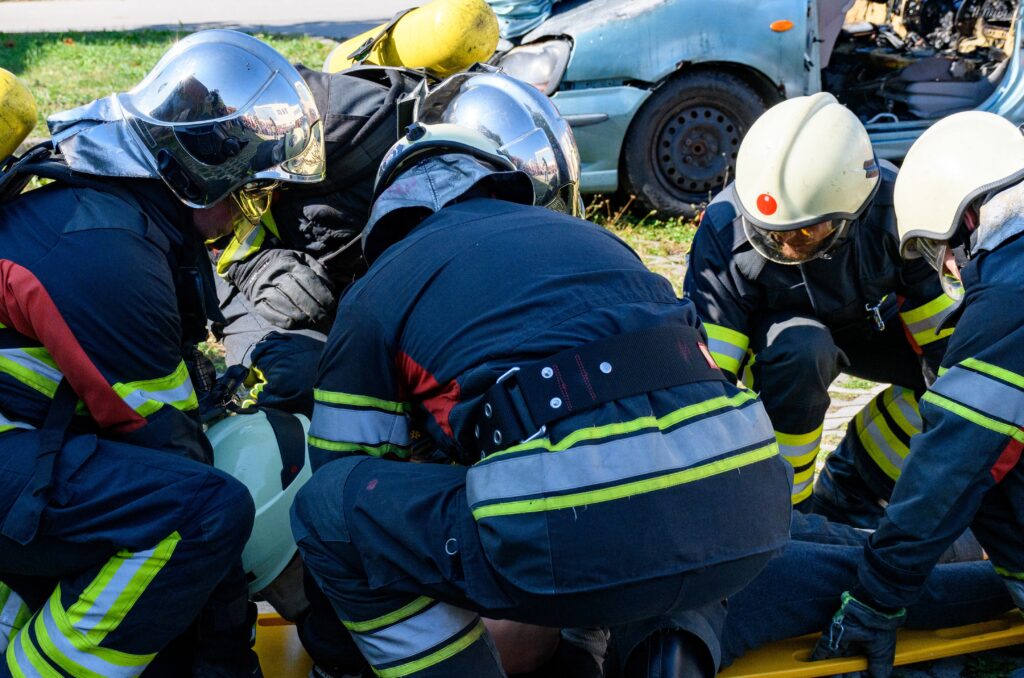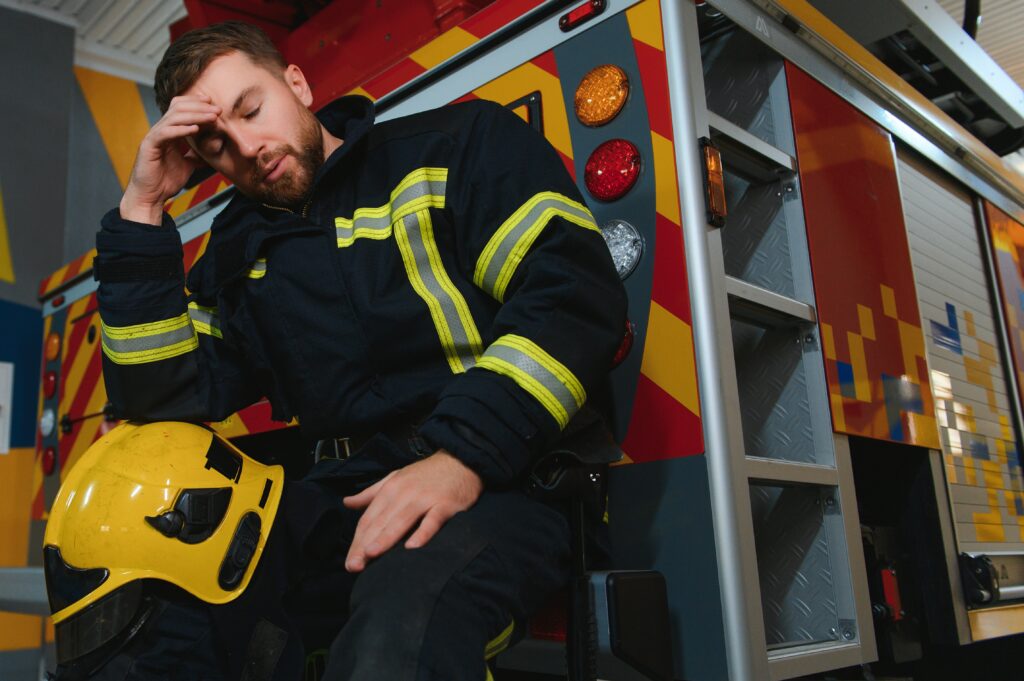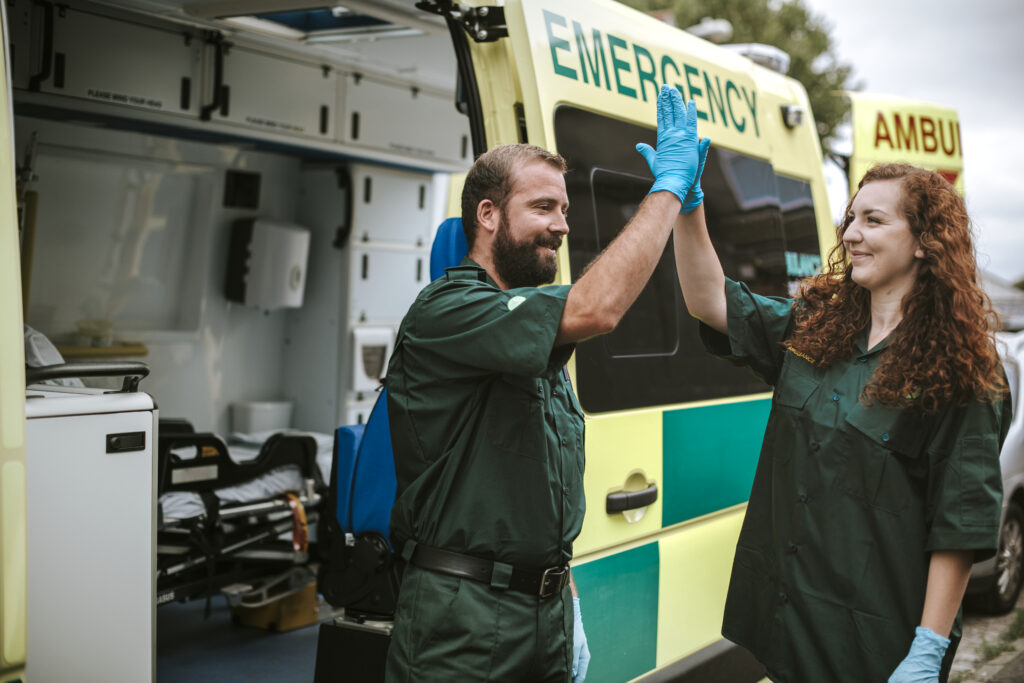
First responders, the brave individuals at the forefront of emergencies, are not immune to the pressures and traumas that come with their noble professions. High-stress environments, repeated exposure to trauma, and a culture that often equates bravery with silence can lead to coping mechanisms that are less than healthy. Among these, alcohol use disorder (AUD) presents a significant challenge, affecting the well-being of our first responders and the quality of service they provide. This article delves into the unique challenges faced by first responders, the signs of AUD, barriers to seeking help, and the resources available for recovery, while also exploring how colleagues and communities can contribute to a supportive environment.

First responders operate in high-stress environments that can significantly affect their mental and physical health. The constant exposure to life-threatening situations and the pressure to perform can lead to chronic stress, which is a known risk factor for alcohol use disorder.
In these high-pressure roles, the need for effective stress management strategies is paramount to prevent the escalation of stress into more serious health issues.
Understanding the specific stressors that first responders face is crucial for developing targeted interventions. These professionals are often the first on the scene of accidents, natural disasters, and other traumatic events, which can leave lasting psychological impacts.
First responders are routinely exposed to situations that can leave lasting psychological scars. The repeated exposure to traumatic events can lead to a range of mental health issues, including post-traumatic stress disorder (PTSD), depression, and anxiety. These conditions can sometimes manifest in harmful behaviors, such as increased alcohol use, as a coping mechanism.
The psychological toll of trauma exposure is not always immediately apparent, and symptoms can develop over time, making early intervention and support crucial.
Understanding the full impact of trauma on first responders requires a comprehensive approach that addresses both the immediate and long-term effects. It is essential to create an environment where seeking help is encouraged and supported, and where the signs of psychological distress are recognized and addressed promptly.
The unwavering culture of bravery among first responders is commendable, yet it often masks the vulnerabilities that come with the job. First responders are trained to prioritize the safety and well-being of others, sometimes at the expense of their own mental health. This selfless approach can lead to a reluctance to seek help for personal struggles, including alcohol use.
The silent battle with alcohol use disorder can be as challenging as the visible crises first responders face daily. It’s crucial to recognize that vulnerability does not equate to weakness, but rather to humanity.
Understanding the complex interplay between the culture of bravery and alcohol use is essential. It is a step towards creating an environment where first responders can seek help without fear of judgment or repercussions.

Identifying alcohol use disorder in first responders is crucial for timely intervention. Early recognition of the signs and symptoms can save careers and lives. First responders may exhibit a range of indicators that suggest a struggle with alcohol use, including but not limited to:
It is essential to approach any concerns with sensitivity and support, as first responders may be reluctant to admit to difficulties with alcohol due to the stigma attached to seeking help.
Recognizing these signs is the first step in providing the necessary support. It is important for peers and supervisors to be vigilant and to create an environment where first responders feel safe to seek help without judgment or fear of repercussions.
Peer support among first responders is a critical component in the early identification of alcohol use disorder. Colleagues who work closely together can often recognize changes in behavior or performance that may indicate a problem. This early detection is essential for prompt intervention and support.
Peer support is not just about observation; it’s about creating a safe space where first responders can discuss their challenges without fear of judgment or repercussions.
The effectiveness of peer support is enhanced when combined with formal training and resources, such as the Comprehensive Addiction and Recovery Act, which provides resources for training in administering support. By fostering an environment of trust and open communication, peers can play a pivotal role in encouraging their colleagues to seek help early.
The stigma surrounding alcohol use disorder (AUD) in first responders is a significant barrier to seeking help. Overcoming this stigma is crucial to encourage self-reporting and early intervention. To address this, it is essential to foster an environment where first responders feel safe and supported in discussing their struggles with alcohol.
By creating a non-judgmental space, we enable first responders to share their experiences without fear of retribution or damage to their professional reputation.
It is also important to educate both leadership and peers about the signs of AUD and the importance of a supportive response. This education can help to dismantle misconceptions and promote a culture of care rather than one of judgment.

First responders often face a complex web of reasons that contribute to their reluctance to seek help for alcohol use disorder. Fear of judgment and potential repercussions on their careers can be powerful deterrents. They may worry about being perceived as weak or unable to handle the pressures of their job.
The decision to seek help is not taken lightly, and it is often weighed against the potential risks to one’s livelihood and reputation.
Understanding these barriers is crucial for developing supportive environments that encourage first responders to prioritize their health without fear of negative consequences.
First responders face a myriad of structural obstacles when seeking help for alcohol use disorder. These barriers often stem from the very systems designed to support them. For instance, the hierarchical nature of emergency services can discourage individuals from speaking up due to fear of repercussions or damaging their career prospects.
Addressing this treatment gap also requires an understanding of system-level barriers. Without significant changes to these structures, many first responders will continue to struggle in silence.
First responders often grapple with personal fears and concerns that act as barriers to seeking help for alcohol use disorder. The fear of judgment from peers and the potential impact on their career can be paralyzing, leading many to suffer in silence rather than reach out for the support they need.
These internal battles are compounded by the high expectations placed on first responders to consistently perform at their best, regardless of personal challenges.
Understanding these personal fears is crucial in developing compassionate support systems that encourage first responders to seek help without fear of retribution or stigma.

The After Action program by AM Health Care has set a precedent in addressing the specific needs of first responders dealing with substance abuse. Their gender specific program has a specialized approach to treatment that acknowledges the unique challenges faced by these professionals.
Effective treatment programs for first responders must be tailored to address the high-stress environments and potential trauma exposure that are inherent to their roles. The After Action program exemplifies a comprehensive support system, providing confidential care by culturally aware, trauma-informed doctors, therapists, techs and support staff.
It is crucial for treatment programs to integrate strategies that resonate with the culture of bravery, encouraging first responders to seek help without fear of stigma or professional repercussions.
Additionally, the following list outlines key components that should be included in treatment programs for first responders:
For first responders grappling with alcohol use, building a network of support is crucial for recovery. This network should encompass professional resources, peer support, and community connections. AM Health Care’s After Action program exemplifies a structured support system, providing emotional support through a peer-to-peer approach.
Recovery is not a journey to embark on alone; a robust support network can provide the strength and resilience needed to overcome challenges.
The importance of a support network is underscored by the fact that millions of American adults consider themselves in recovery, highlighting the widespread need for and benefit of such systems.
Holistic approaches to recovery emphasize treating the whole person rather than just the symptoms of addiction. These methods integrate physical, mental, and spiritual wellness to support a more comprehensive recovery journey. Holistic therapies can include activities such as yoga, meditation, acupuncture, and sensory therapy, which have been shown to improve outcomes for individuals in recovery.
Incorporating holistic therapies into a recovery program can provide a respite from the intensity of traditional treatments. For example, the After Action program by AM Health care offers Sensory Modulation therapy, designed to harness the power of sensory input to facilitate calm, focus, and resilience in the face of stress and trauma.
Holistic recovery strategies are not a replacement for traditional medical and psychological treatments but are used to complement and enhance the overall recovery process.

Fostering a culture of openness and support within first responder organizations is crucial for addressing alcohol use and promoting mental well-being. Creating an environment where individuals feel safe to discuss their struggles is the first step towards healing.
By encouraging open discussion and sharing of experiences, we lay the groundwork for a more empathetic and understanding workplace.
To effectively cultivate this culture, several strategies can be implemented:
These steps, inspired by successful programs and expert insights, can lead to a more supportive environment that not only addresses alcohol use but also enhances overall mental health.
Educational initiatives play a crucial role in the prevention of alcohol use disorders among first responders. Awareness campaigns, such as Alcohol Awareness Month, highlight the importance of prevention activities and provide valuable resources for youth and college students. These initiatives often include voices of the community and are tailored to address the unique challenges faced by first responders.
To effectively disseminate information, a variety of programs and resources are utilized:
By fostering a proactive approach to education, we can create an environment where first responders feel informed and supported in making healthier choices.
Collaboration with educational institutions and community organizations ensures that these initiatives are accessible and relevant. The inclusion of language interpretation services and accommodations for American Sign Language are examples of efforts to make these resources inclusive for all members of the community.
Community partnerships play a pivotal role in enhancing the resources available to first responders struggling with alcohol use disorder. Collaborative efforts between healthcare systems and local organizations can lead to innovative solutions tailored to the unique needs of these professionals. For instance, Memorial Hermann Health System’s initiative to address health disparities in Houston’s Near Northside neighborhood demonstrates the power of such alliances.
Effective partnerships often involve a variety of stakeholders, including:
By fostering a network of support, first responders can access a more comprehensive range of services, from prevention to treatment and recovery.
As we have explored the unique challenges faced by first responders and the prevalence of alcohol use disorder within their ranks, it is clear that a collective effort is needed to address this critical issue. From recognizing the signs of alcohol use disorder to breaking down barriers to seeking help, and providing resources for recovery, every step is crucial in supporting our bravest professionals. Communities and colleagues alike have a role to play in fostering a culture of support and prevention. It is our responsibility to ensure that those who are first in the field, and first in the fight, are not left to battle their struggles alone. Let us move forward with a commitment to education, awareness, and action, to safeguard the well-being of our first responders—the very individuals who dedicate their lives to protecting ours.
First responders operate in high-stress environments, frequently encounter trauma, and are immersed in a culture that often equates bravery with stoicism, leading to a higher risk of alcohol use disorder.
Signs to watch for include changes in behavior, increased risk-taking, withdrawal from social interactions, unexplained injuries or accidents, and a decline in work performance.
Barriers include stigma associated with seeking help, fear of professional repercussions, lack of awareness about available resources, and the belief that they should handle problems on their own.
Treatment programs like AM Health Care’s After Action program, tailored to first responders’ experiences, including peer support groups, therapy that addresses trauma, and comprehensive recovery plans, have shown effectiveness.
Support can be provided by fostering a culture of openness, offering education on alcohol use disorder, encouraging professional help, and creating community partnerships for better resources.
Yes, there are initiatives such as peer support programs, mental health awareness training, and collaborations with hospitals and trauma centers like AM Health Care’s After Action program to provide targeted assistance.
